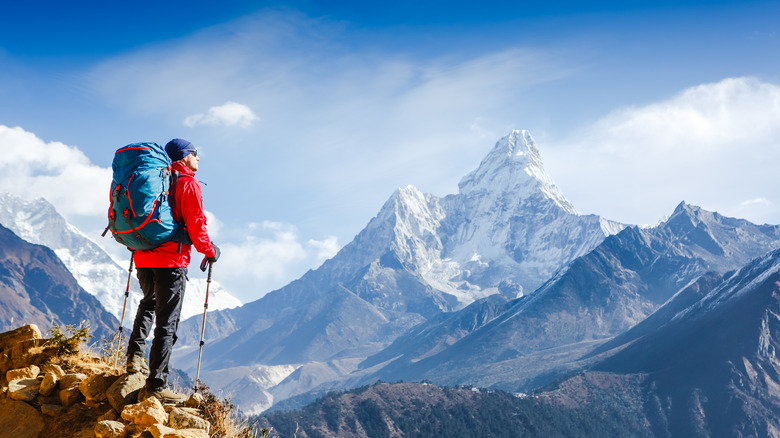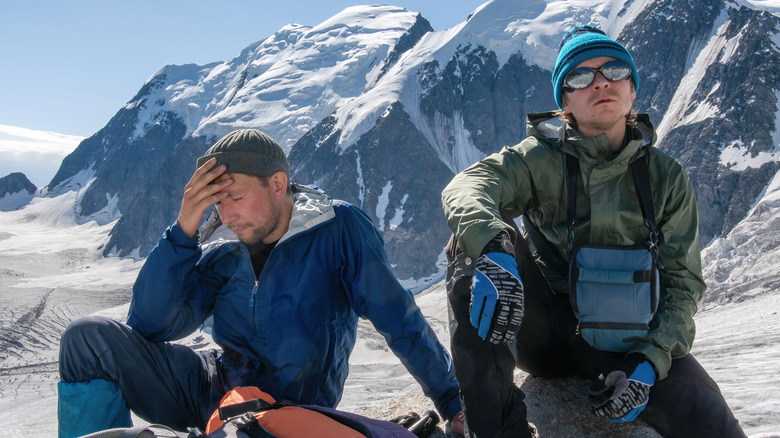How Altitude Affects Your Body
If you've ever traveled to a significantly higher altitude than you're used to, you probably noticed some physical changes happening in your body. Here's how altitude really affects you and how to reduce negative symptoms.
Altitude refers to the distance above sea level and is determined by measuring the relative air pressure (via National Geographic). The higher the altitude, the lower the air pressure. This is because of two reasons: gravity and density. The Earth's gravity causes air to be as close to the surface of the planet as possible, so there is less air the higher up you climb. Air pressure also becomes less dense as altitude increases. Because of this, there is less oxygen available to breathe in higher altitudes.
The first way altitude affects your body is by making it harder to breathe. Because there is less oxygen in the air, your lungs have to work harder than normal to get oxygen into your bloodstream. You may get out of breath more quickly than normal and it may feel more difficult to inhale air.
You can develop altitude sickness if you don't let your body adjust to a new altitude
People who travel to a high altitude and don't allow their bodies to adjust can develop altitude sickness. Any location more than 8,000 feet above sea level is considered a high altitude. According to Cleveland Clinic, altitude sickness can occur when there is a "rapid change in air pressure and air oxygen levels at higher elevations." Even people in good shape can experience this condition. High altitudes can also cause your blood vessels to leak fluid, which can cause serious issues if not treated quickly.
Symptoms of mild altitude sickness include nausea, lightheadedness, headaches, fatigue, dizziness, shortness of breath, and loss of appetite. These symptoms will usually go away on their own as your body adjusts to a higher altitude. Moderate altitude sickness occurs when your body does not have time to adjust to the altitude because you continue to increase your altitude level. This can happen to people climbing mountains very quickly. These symptoms include worsening fatigue, severe headache, vomiting, and coordination problems.
Severe altitude sickness requires emergency medical care. Symptoms can become even worse to the point that the person cannot walk, has serious difficulty breathing, and gets fluid buildup in their lungs or brain. Someone with severe altitude sickness will need to be taken to a hospital right away.


